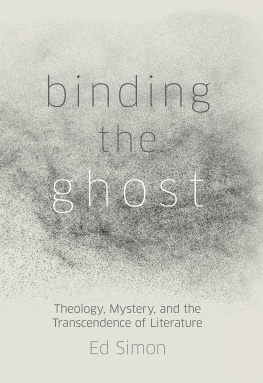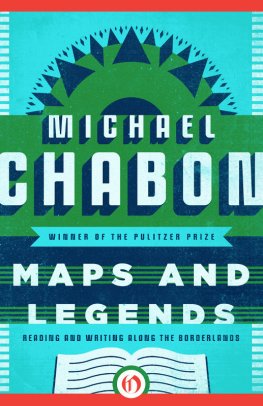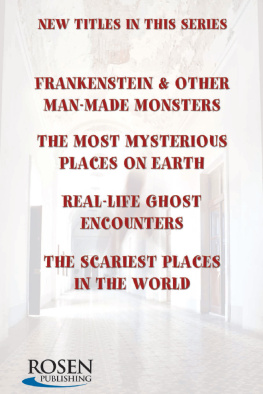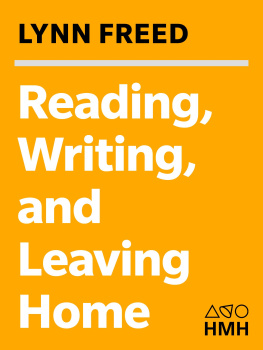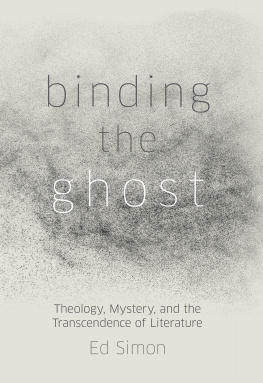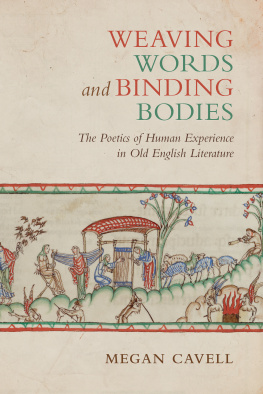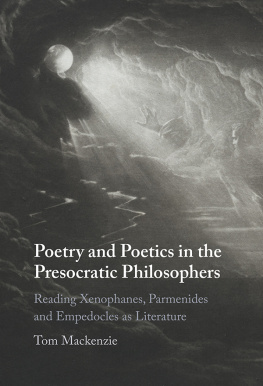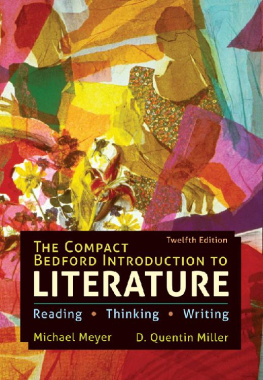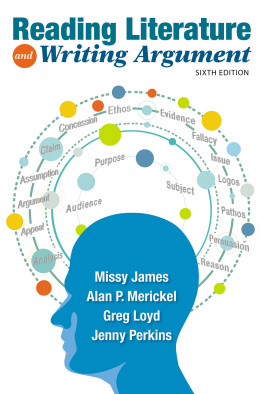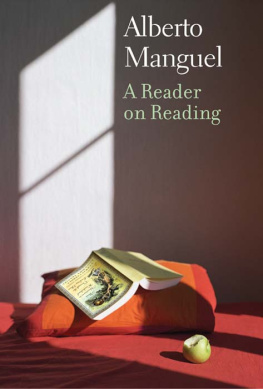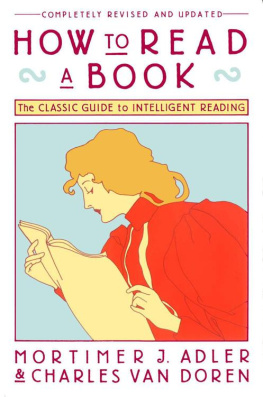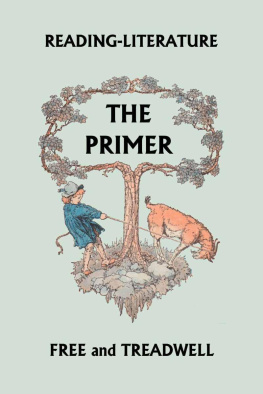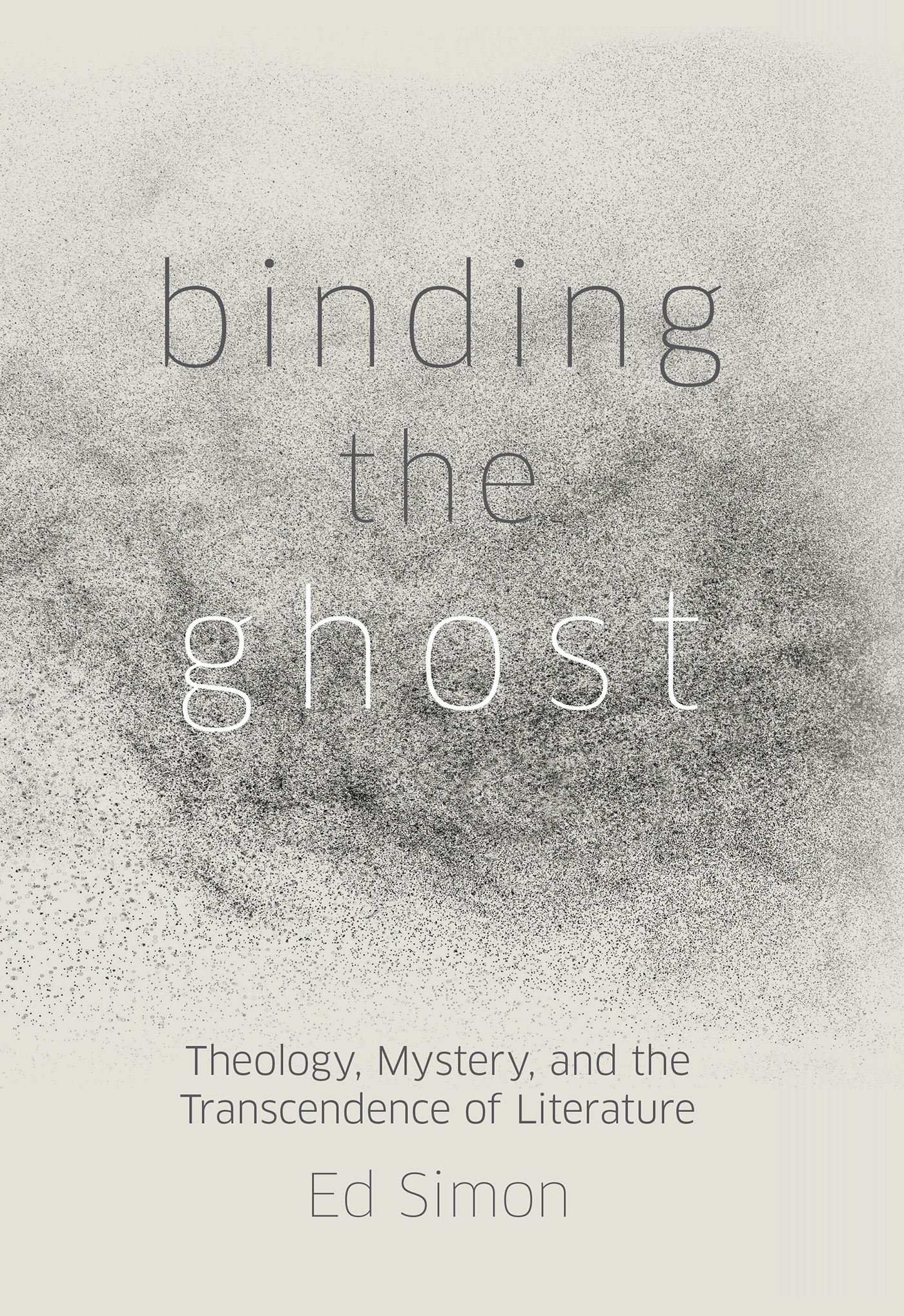
Praise for Binding the Ghost
Ed Simons incantatory book conjures up a world where literature and mysticism meetwhere prayer is poetry and poetry is prayer. Delving joyously into centuries of texts, it promises nothing less than to reenchant our relationship with reading.
Briallen Hopper, author of Hard to Love
All truly perceptive writers and readers of literature know that they are engaged in something uncannycall it magic, sacrament, theurgy, communion with things unseen, or what have youand that to enter into the depths of language is to practice conjuration and enchantment, or to be possessed and addressed by divine powers. Apparently, Ed Simon was practicing Orphic criticism long before he found a name for it. There is a luminous quality to all of these essays that shows he has long been aware that the true experience of literature is an initiation into mysteries, and a glimpse beyond what nature alone can reveal.
David Bentley Hart, author of That All Shall Be Saved
Ed Simons writing is bold, norm defying, and refreshingly heretical. All poetry is incantation and all prose is conjuration, he writes in this book. And for good measure, he adds: Between those two poles lies the entirety of literature. With frightening intelligence, a true polymaths breadth of knowledge, and a prophets pathos, Simon shows in Binding the Ghost that the genuine work of art is a gesture toward transcendence. The best literature always takes you out of this world.
Costica Bradatan, professor of humanities, Texas Tech University
Binding the Ghost
Binding the Ghost
Theology, Mystery, and the Transcendence of Literature
Ed Simon
Fortress Press
Minneapolis
BINDING THE GHOST
Theology, Mystery, and the Transcendence of Literature
Copyright 2022 Ed Simon. Printed by Fortress Press, an imprint of 1517 Media. All rights reserved. Except for brief quotations in critical articles or reviews, no part of this book may be reproduced in any manner without prior written permission from the publisher. Email or write to Permissions, Fortress Press, PO Box 1209, Minneapolis, MN 55440-1209.
All Scripture quotations are from the King James Version.
Image: Close up of spray water on black background
Credit: iStock, user Paperkites, ID number 1207523029
Cover design: Kristin Miller
Print ISBN: 978-1-5064-7877-7
eBook ISBN: 978-1-5064-7878-4
While the author and 1517 Media have confirmed that all references to website addresses (URLs) were accurate at the time of writing, URLs may have expired or changed since the manuscript was prepared.
For my son, Finn, in the hopes that you forever find the beauty in imagined worlds and the truth in artful words carefully arranged
Contents
Attend Muse to Our Sacred Song
Giordano Bruno didnt like England. The occultist and itinerant lecturer had arrived in London in 1583, having already called Naples, Venice, Rome, Lyon, Tours, and Paris home. Only a year later, and hed write in his dialogue The Ash Wednesday Supper that English scholars, such as those he disputed with at Oxford, were a constellation of the most pedantic, obstinate ignorance and presumption, mixed with a kind of rustic incivility, which would try the patience of Job. Despite his disdain, the Italian would have a productive two years in the country, producing six books, including On the Infinite Universe and Worlds and On the Heroic Frenzies, arguably conceiving the earliest hypotheses that consider the possibility of extraterrestrial life and of cosmological infinity. Bruno was an audacious thinker, part astronomer and part mystic, whose embrace of pagan occultism promised a new intellectual vitality and threatened the established order. The sixteenth century was an era marked by tumultuousness in matters doctrinal, philosophical, and scientific, and Bruno was at the nexus of all three, a pugnacious man who was part Copernicus and part Martin Luther, though irreconcilably himself. At the core of his vision was the acknowledgment of realitys uncanny nature. Divinity reveals herself in all things, wrote Bruno in the 1584 tract The Expulsion of the Triumphant Beast, everything has Divinity latent within itself. Such enthusiasms are why Bruno found himself strapped to green kindling in Romes Campo de Fiori in the first year of the new century, immolated by the Inquisition for his heresies.
More than any other English thinker, Bruno would find a sympathetic spirit in the great statesman, poet, and critic Philip Sidney. Bruno dedicated two books to Sidney, evidence of deference afforded to the poet by many throughout his career. After Sidney was killed during the Battle of Zutphen in 1586, the steadfast Protestant enlisting alongside the Dutch in their war of independence from Spain, Fulke Greville, memorialized the great man, writing that knowledge her light hath lost, valor hath slain her knight, / Sidney is dead, dead is my friend, dead is the worlds delight. Celebrated for his immaculate verse, such as the sonnet cycle Astrophel and Stella and the romance The Countess of Pembrokes Arcadia, perhaps Sidneys greatest achievement was his slim book of literary criticism, An Apology for Poesy. Most likely written in 1580, though only published posthumously fifteen years later, Sidneys defense was for why cunning lies artfully organized should be countenanced by a Christian society. Philosophers and theologians had, since Plato, viewed literature with a suspicious and critical eye, often understanding it as being at best diversionary and at worst idolatrous. Sidney, by contrast, valorized poetry as a speaking picture... to teach and to delight.
Much of the opprobrium directed at writers was that they invented truths, that they lied. Plato wrote in The Republic, as translated by Allan Bloom, that that imitation is surely far from the truth... because it lays hold of a certain small part of each thing, and that part is itself only a phantom... those who take up tragic poetry in iambics and in epics are all imitators in the highest possible degree. By contrast, where Plato saw writing as a kind of play and not serious, Sidney affirmed the intrinsic value of that very same play. An Apology for Poesy defends poetry by complicating Platos claims about imitation. According to Sidney, Platos central suspicion was entirely wrong, for the poet, he nothing affirmeth, and therefore never lieth. Sidney allows that other people who manipulate words are capable of duplicity, or error, such as the historian who affirming many things, can, in the cloudy knowledge of mankind, hardly escape from many lies. But the postulates of poetry are not like that of history; they do not correspond to reality in the same way. For that matter, neither does fiction, for when an author explores a world, they are not lying about something in our realitythey are creating a new reality.
An Apology for Poesy doesnt claim to be a book about magicbut it is. Any kind of hermetic basis for the book has been unexplored, and yet its tremendously evocative to imagine what Sidney and Bruno might have conversed about at that Ash Wednesday supper. Sidney claims not that fiction and poetry arent false or true but rather that literature is almost truer than true, realer than real. By positioning words set in delightful proportion, the poet can generate entirely new worlds, all through the manipulation of letters and punctuation. Sidneys and Brunos theories of language are thus similar, for the latter was an adept kabbalist, hermetist, and occultist, adhering to that Neoplatonist understanding of the significance of language that was so popular in the Renaissance. Frances Yates explains in
Next page
